Action in the Amazon 2020
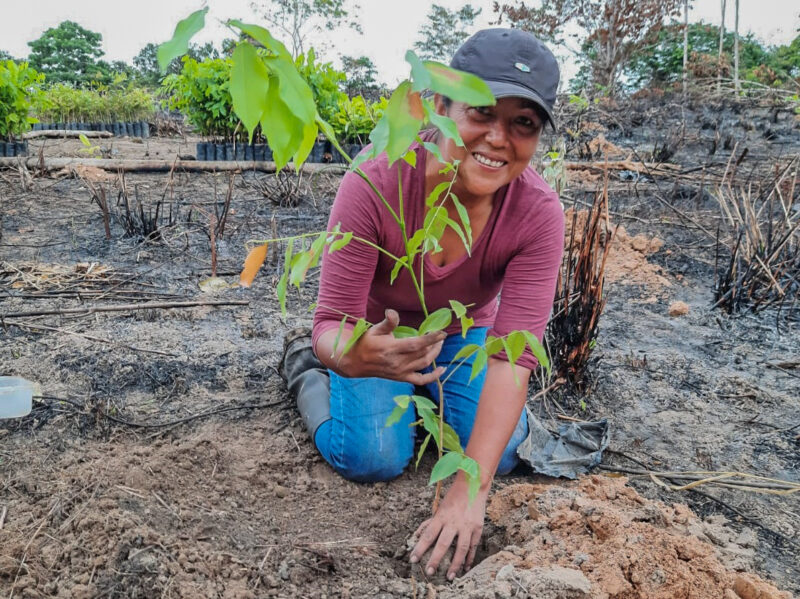
Discover how Plant your Future is restoring the rainforest with native trees to tackle climate change and biodiversity loss, while alleviating poverty and building community resilience at the same time…
Between 2019 and 2020, our team worked tirelessly to plant an impressive 15,703 native trees across the Amazon. This has enabled us to restore 14.5 hectares of land that was deforested and abandoned, bring it back to forest cover through tree-based agriculture.

As part of our exciting and ambitious scale-up, in the first few months of 2021 we’ve already planted 11,300 trees, bringing the total number of native trees planted across the Peruvian Amazon to over 70,900.
We work across two regions of Peru’s north-eastern Amazon, Ucayali and Loreto, to reforest the land through agroforestry – improving livelihoods and tackling climate change.
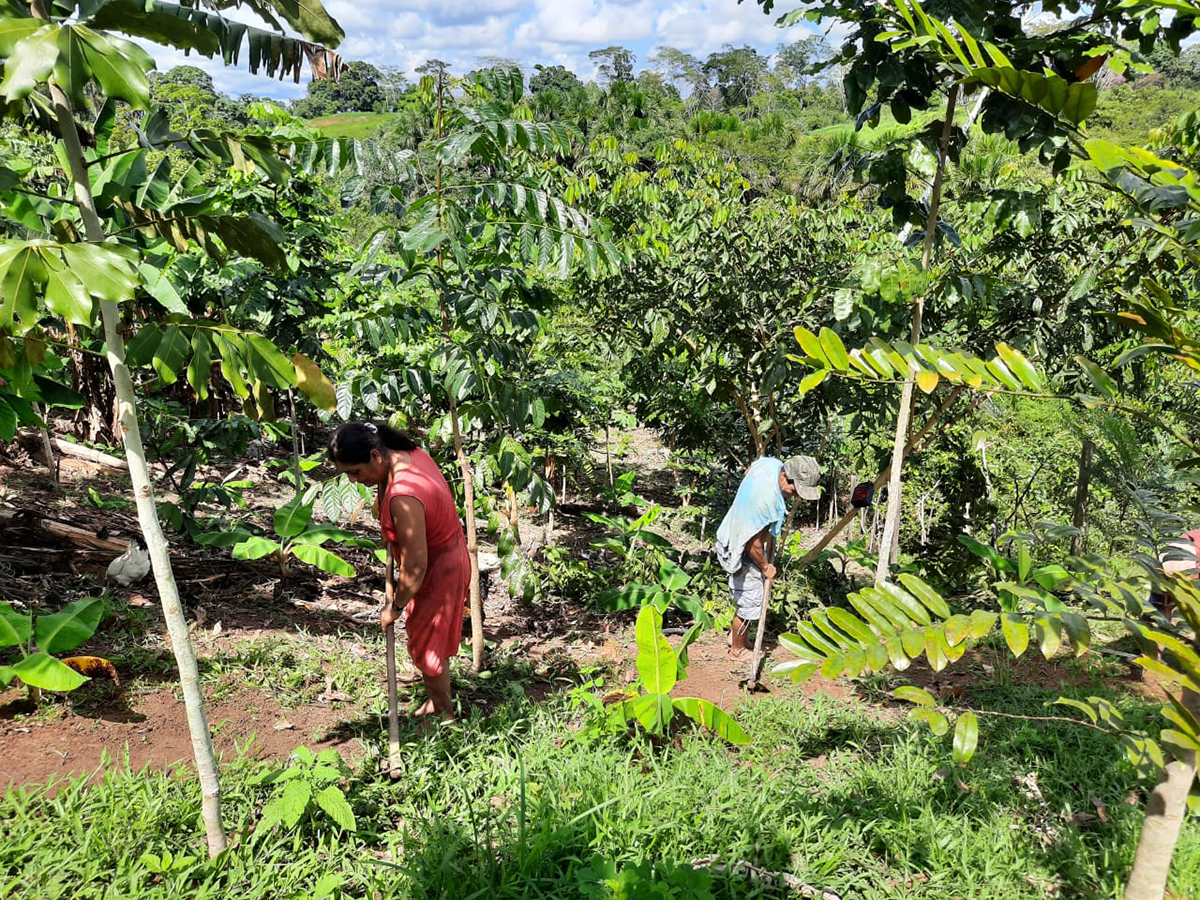
These regions sit in the Western Arc of the Amazon Rainforest; one of the most biodiverse places on Earth and of critical importance for conservation. Slash-and-burn agriculture is responsible for about 90% of deforestation in these regions, destroying biodiversity and contributing to climate change.
It also traps people in a cycle of poverty; typically, families earn just £100 per month from their small farms, barely enough to cover basic needs, leaving them vulnerable to crisis.
By empowering low-income disadvantaged communities, we enable them to transition from unsustainable and destructive agriculture to environmentally-friendly agroforestry. This tree-based agriculture system combines planting crops, fruit-bearing orchard trees, and timber trees.
How our model works
The journey starts with training workshops, consultations and one-on-one farm visits with prospective new families and our team. We also invite interested families to visit with existing farmers already in our programme to see our agroforestry systems in reality.
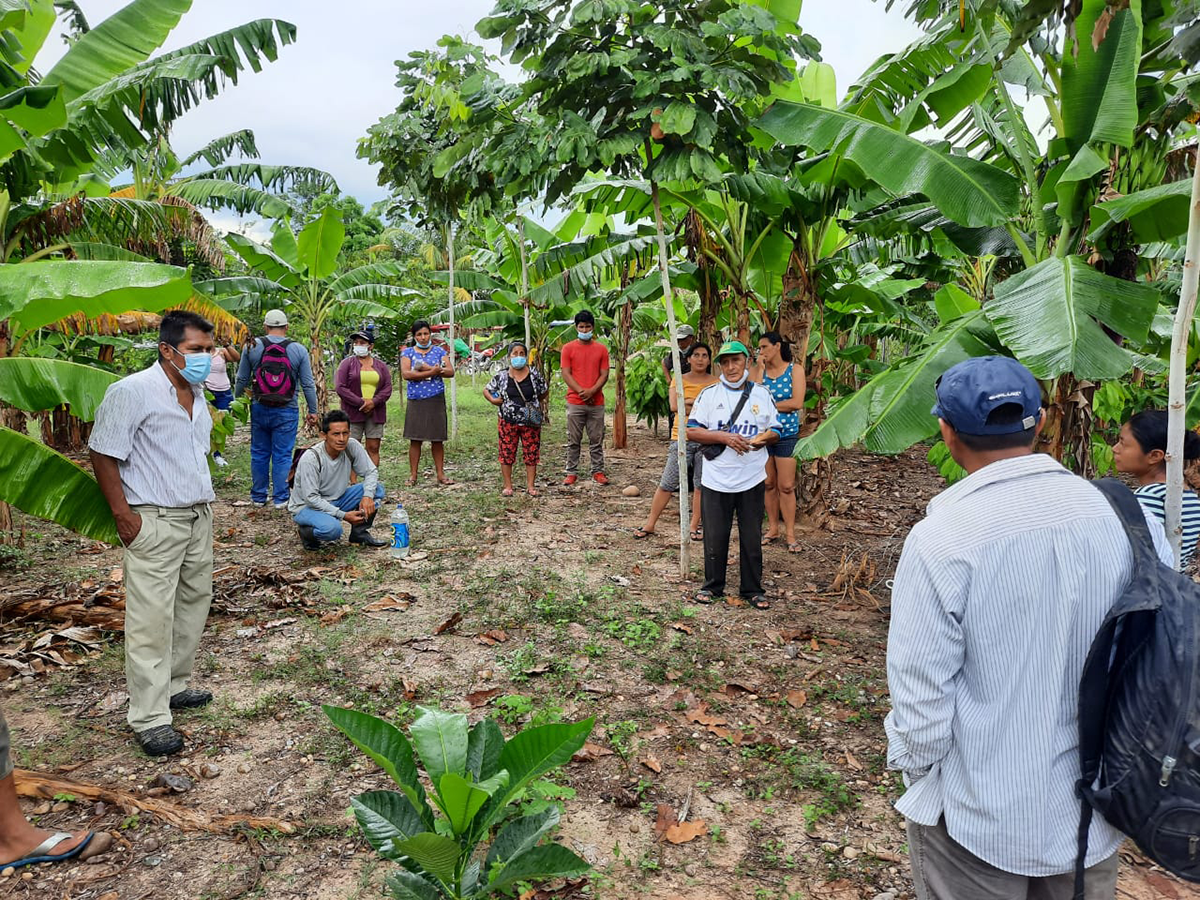
Once families understand our restoration model and decide to commit to working with us, we sign a formal agreement laying out our and their commitments.
When the wet season (aka the planting season) comes around, families receive native tree saplings for free – but with the proviso they need to be involved in planting out.

We then support beneficiaries with inputs and tools so that the trees can flourish on their degraded lands, with timber trees growing big and strong to capture carbon and for fruit-bearing orchard trees to produce high yields. Much of our effort is focused on soil restoration – creating healthy, rich soils by planting nitrogen fixing legumes and using a range of fertilisation techniques.
Our team works alongside communities every day so that they gain the skills, knowledge and confidence to run an agroforestry system and turn it into a successful business. Every part of our project includes training for the families we work with, including workshops and farmer field schools that use the ‘learning-by-doing’ approach.
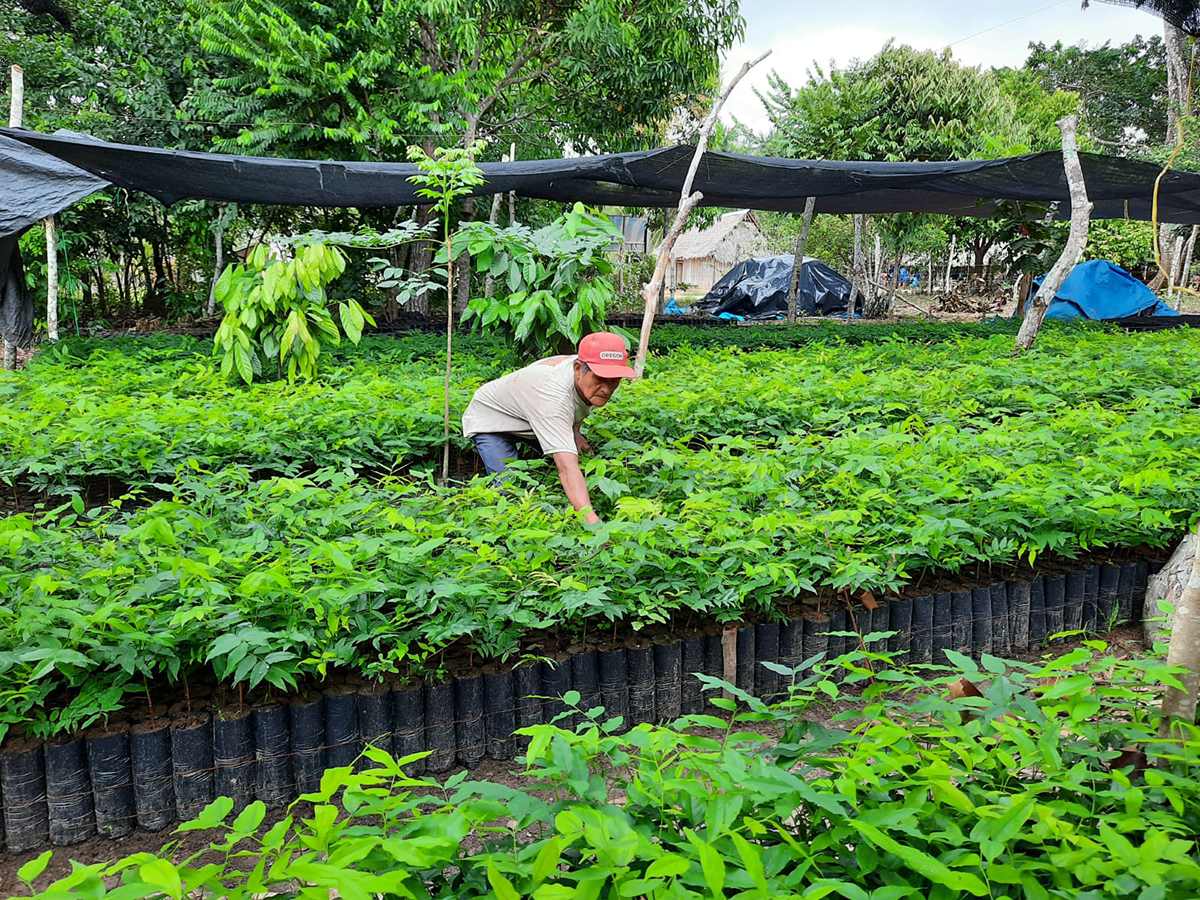
Our expert team of foresters and agronomists work on-the-ground with communities and establish best practice strategies to restore the land – increasing biodiversity and mitigating climate change.
This practical, hands-on training enables communities to gain the knowledge, skills and confidence to transition away from further deforestation. They’re empowered to restore and protect the rainforest into the future.
Our plans for 2021
We aim to plant 45,000 native trees in the first half of 2021 to restore approximately 45 hectares of degraded and abandoned land back to forest. If we’re successful, then we will double the impact of our work in a single year – as part of our ambitious scale-up over the next few years that we’ve set-out in our five year strategy.
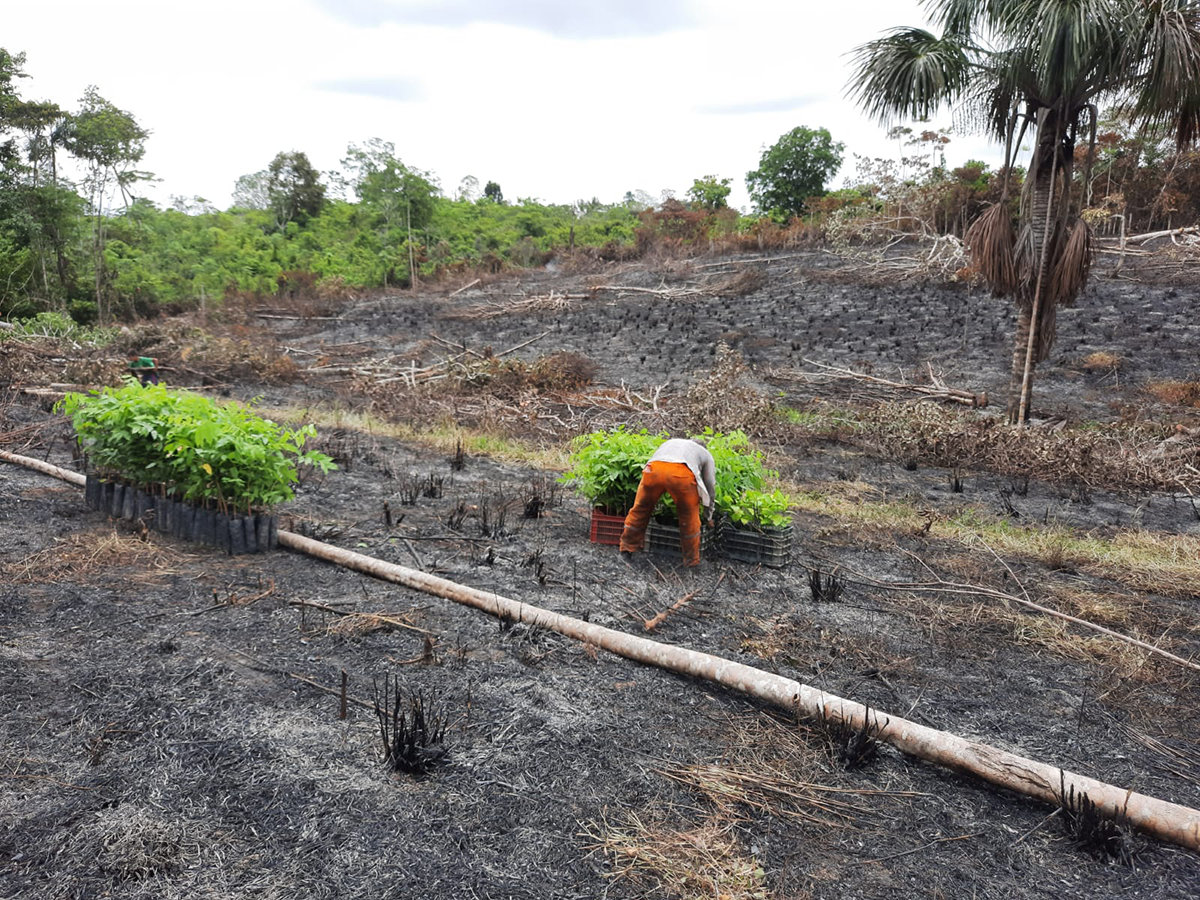
Over the next couple of months, our team will be out in the field all day alongside beneficiary families, planting thousands and thousands of trees – without a doubt, it is an energising and exciting way to start 2021. Even more, it’s bringing us hope for what we can achieve into the future.
We know the impacts of climate change will come and they will hit hard, but we’re acting now to mitigate the damage and build community resilience. Through this progressive way of farming, communities can reduce deforestation, protect biodiversity and mitigate climate change while also improving their livelihoods and increasing food security.
Our chairman, Jenny Henman, said:
“As a global community, we should not be thinking about the pandemic as a one-off crisis, we should be taking it as a wake-up call. Scientists have unequivocally said we are facing climate breakdown if we do not take urgent action.” Jenny added: “The good news is that scientists have also shown that natural climate solutions can provide up to 37 percent of the emission reductions needed by 2030 to keep global temperature increases under 2°C. Tree planting in the tropics – alongside reducing deforestation – is unquestionably one of the most important activities that we must increase immediately. ”
PYF chairman, Jenny Henman
With this year marking the start of the United Nations’ decade on Ecosystem Restoration, we all need to take action to plant native trees to heal the wounds we have already inflicted on the planet.
You can take climate action by supporting our work today.
Agriculture, agroforestry, amazon rainforest, climate action, Climate Change, climate crisis, community, environment, peru, plant trees, Poverty, reforestation, Sustainability, sustainable farming, tree planting